Is CBD really the miracle drug that marketers claim?

The wellness world has long been inundated with health trends—“raw” water, probiotics, juicing, you name it—but cannabidiol, or CBD, a marijuana-derived chemical, has taken things to new heights. Retailers market it as a “miracle molecule,” claiming it can treat ailments including nausea, anxiety, cancer, arthritis, and even Alzheimer’s disease. It’s commonly sold as an oil or added to products like candies, teas, and lotions you can find in health food stores, in pet depots, or even on Amazon.
Some celebrities have become cbd believers: ufc fighter Nate Diaz once said it will “make your life a better place,” while Gwyneth Paltrow’s wellness blog, Goop, recommends a cbd-spiked mint julep “for kicking relaxation mode into overdrive.”
Experts estimate the CBD market is worth hundreds of millions of dollars, and it’s projected to surpass $1 billion by 2020. But what do science and the law really say about this new “miracle molecule”? We’ve fact-checked some common claims so you don’t have to.
It’s totally legal. False. CBD is illegal under the federal 1970 Controlled Substances Act. As a Schedule I drug, it’s in the same category as heroin, LSD, and ecstasy—even when it’s derived from hemp, a variety of cannabis that, unlike marijuana, contains only trace amounts of THC, the compound that gets you high.
This story is from the November/December 2018 edition of Mother Jones.
Start your 7-day Magzter GOLD free trial to access thousands of curated premium stories, and 9,000+ magazines and newspapers.
Already a subscriber ? Sign In
This story is from the November/December 2018 edition of Mother Jones.
Start your 7-day Magzter GOLD free trial to access thousands of curated premium stories, and 9,000+ magazines and newspapers.
Already a subscriber? Sign In
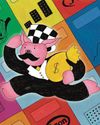
HOG WILD
The scandalous reason meat prices have skyrocketed
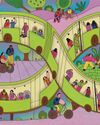
ALL WALKS
Limiting cars in cities can help disabled people, too.

REMIGRATION
How Trumpism is following the far right in Europe toward mass expulsion of immigrants
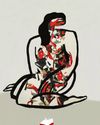
SETTLING THE SCORE
A pop psychology book is considered the definitive trauma text. But what if it's leading survivors down the wrong path?

Positive Spin
People with e-bikes drive less, pollute less, parkinglots-and that's only part of why cities and states are embracing them with gusto.
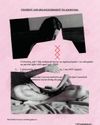
Cradle and All
The devastating cost of Utah's thriving adoption industry
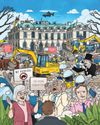
THE BILLIONAIRE WHO NEARLY BROKE NEWPORT
TRUMP MEGADONOR STEPHEN SCHWARZMAN'S EXTREME MANSION MAKEOVER IS DRIVING HIS NEIGHBORS NUTS.
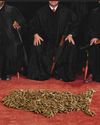
THE SECRET PLAN TO STRIKE DOWN US GUN LAWS
AND THE COP-TURNED-PASTOR AT THE CENTER OF IT ALL

GOOD NIGHT AND GOOD LUCK
Election Day inside a bustling broadcast newsroom that no longer exists

MASTER OF DISASTER
Trump won’t confront the climate crisis. He’ll feast off it.